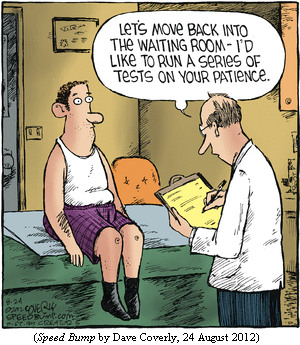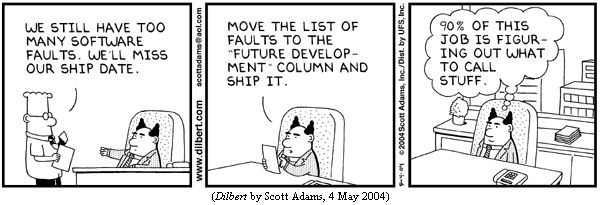


|

|
HERE'S TO YOU, MY RAMBLIN' BOY: Donna and I actually got all of her stuff out of Ethan's room during the first couple of weeks of August, leaving the surface of the bed unoccupied. He Who Shares Half My Chromosomes returned to these United States in the late afternoon of Saturday 18 August, though his traveling companion did not. (She'd aimed to save money by purchasing a standby ticket, and got bumped from not one but several flights. She made it back two days and some hours later; Ethan went by himself to pick her up.) He's looking none the worse for wear, though his hair is shorter, darker and curlier than when he left here. (He actually shaved his head completely upon returning to Cameroon last year, just for a change, enlisting the aid of another volunteer or two.) His first few days back were occupied with unpacking and with some final bureaucratic Corps stuff—mostly medical examinations and inoculations. He has friends with whom to visit, a bachelor party and a wedding to attend, computer hardware and software to update...and then there's looking for employment and an apartment. I'll pass everyone's regards along, but he may be too busy to respond.
And I can now breathe a sigh of relief that the cat is finally No Longer My Problem.
SHORT SHELF LIFE MUSIC DEPARTMENT: 11 August, the day before the most recent metropolitan hausfilk, I heard the news that the presumptive Republican Presidential candidate had selected his running mate, and the following lines immediately suggested themselves to me. At least one person at the filk didn't know of the original, much less recognize it when I sang it, so I'll add that it's to the tune of "The Bells of Rhymney":
Oh, who will vote for me? says the campaign of Romney.I wasn't sure where I could go with it from there, but I tried some candidates who dropped out of the race earlier this year:
We don't need all this drama, says the campaign of Obama.
Unborn children are dyin', says the campaign of Ryan.
My gaffes I'm not hidin', says the campaign of Biden.
Don't need government at all, said the campaign of Ron Paul.And then just for good measure, some fictional ones I've supported in the past:
[ALT: Pepperoni or plain, said the campaign of Herman Cain.]
We'll have pastures of plenty, said the campaign of Pawlenty.
You're against 'em or for 'em, said the campaign of Santorum,
And the rich will vote for me, says the campaign of Romney.
Truthiness is on the air, said the campaign of Colbert.And for those who hate choosing the lesser of the evils:
The Red Baron's no groupie, said the campaign of Snoopy.
This nation's running amuck, said the campaign of Howard the Duck,
And 1% will vote for me, says the campaign of Romney.
I will win now or later, says the campaign of Darth Vader.
I will get them and you too, says the campaign of Cthulhu.
If you fight me you're a moron, says the campaign of Sauron,
And you'd better vote for me, says the campaign of Romney.

|
PERRY WHITE, PERRY COMO, PERICARDITIS, or GREAT CAESAR'S GHOST, IT'S IMPOSSIBLE, I'M STUCK IN HOSPITAL AGAIN: I get occasional dull pains in my chest, location ill-defined but usually toward the middle, that hurt more when I take a deep breath. I'll notice them one day, and they'll get a bit worse the next day or two, and then gradually fade over a week. My doctors haven't been able to define conclusively what causes this. The most plausible theory, advanced by Dr. H. about a decade ago, is that the generally mild asthma that I've had all my life occasionally flares up, causing stress on the chest muscles that (along with the diaphragm) pull the lungs open as I inhale; this strains one or more of the muscles, producing the ache. It seems to fit the observed facts.
The pain I felt over the penultimate weekend of August started out like that, but got gradually worse, with occasional fever, until a sleepless night Tuesday into Wednesday, with a couple of stretches when it seemed my heartbeat was racing, made me decide it was time to go see Dr. B. I told him what I'd been feeling, and he checked the usual vitals, then hooked me up to an EKG machine. He didn't like the results. He said my blood pressure was low—80/40 or so—and my heartbeat was racing at about 150, with signs of fibrillation. In fact, he called 911 even before he told me this. He said he suspected a pulmonary embolism—a blood clot, often in the leg, that breaks off, travels through the bloodstream to a lung, and lodges there, blocking blood and/or air flow to the lung. Quite life-threatening, though he said if it had happened as early as Friday and I hadn't dropped dead in five days, my chances seemed good.
The EMTs arrived, and did their own obligatory exam; oddly, they didn't find any irregularity in my heartbeat or blood pressure. (Heartbeat weirdnesses that appear and go away like that are called paroxysmal, as in "paroxysmal fibrillation.") Nonetheless, they got me in their ambulance and whisked me to the emergency room at Dr. B.'s affiliated hospital, Beth Israel Kings Highway, slightly more than a mile away (and less than a mile away from the Cadre). Over the ensuing several hours, I gave blood for tests and took excursions to other rooms for a chest X-ray and a CAT scan (and sent texts, e-mails, and Facebook posts from my Android phone, trying to keep important folk informed of my situation; thanks to Ethan for bringing in the charger). About 11 pm I spoke to a physician's assistant, who informed me that the CAT scan had failed to show any embolism, so that the working hypothesis was now pericarditis, and that I was going to be admitted.

The pericardium is a tough, membranous sac that completely encloses and protects the heart, but it can become inflamed for various reasons—viral infection is the most common—and swell, or even accumulate excess fluid (known as pericardial effusion), which makes it swell more. The textbook symptoms seemed to match mine pretty closely; an echocardiogram would clinch the diagnosis.
Though I was officially admitted around midnight, they didn't actually find me a bed for another 12 hours. I dozed on and off on the stretcher in the E.R. cubicle until 7 am, when Dr. T., a cardiologist, came by to confirm what I'd been told about pericarditis. As he said, "All the signs point in that direction, and no signs point away."
Once I had my bed (room 232, bed 1), I got my first echocardiogram—a sonogram of the heart and its neighborhood—a bit later, and later on saw Dr. B. again. He said the echo had confirmed the diagnosis of pericarditis, and had also shown a small amount of pericardial effusion. This had been a matter of concern to me, since massive effusion leads to pressure on the heart, a source of enough danger to justify somewhat invasive measures to drain it; these involve needles inserted deeply and painfully into the chest, or lengthy catheters threaded through veins. Dr. B. assured me that these would not be necessary; small amounts of fluid get reabsorbed as part of the healing process. My regimen would be medical, not surgical. I'd be getting large doses of two anti-inflammatory drugs: ibuprofen, found on drugstore shelves in lower strengths under names like Motrin and Advil; and colchicine, which is usually prescribed for gout, but has been shown in studies to help in pericarditis too. Since both of these tend to irritate the stomach and gut, I was also put on a daily dose of Nexium, to cut down acid secretion.
Since heartbeat irregularities had figured in my being sent to the hospital, two other measures were taken. I was put on a cardiac diet—no salt, no fat, no sugar, and no caffeine. Fortunately, Dr. B. declared that unnecessary, and once that restriction was removed, I found the food (strictly kosher!) quite decent if not worthy of a Zagat rating. The other measure was a telemetry box, about a half-pound of electronics, hanging from my neck and connected to half a dozen little metal contact points glued to my chest and belly. It was constantly monitoring my heartbeat and relaying data to a central computer, which displayed all the heartbeats it was monitoring on a few CRT screens in a couple of places in the hall.
Ethan came by with my laptop, crucial to my keeping occupied and sane (or as sane as I ever am) over the rest of my incarceration. I posted daily updates on Facebook for my millions of devoted followers whoever cared to read them, but really not much happened the next few days. I tried to sleep, with a bit more success later on; I ate; I received a few visitors (all I really wanted) and a lot of phone calls; I tried to persuade myself that the chest pain was diminishing; and I walked up and down the hospital hallway a lot (at Dr. T.'s suggestion). I was a bit distressed to see that my heartbeat, as displayed on the monitors, seldom went much below 90 beats per minute, with the exertion of walking ninety paces from one set of monitors to the other sufficing to raise it to 103 or 105; I could then stand still and watch it drop down to 90 again.
I also spent a lot of time in the bathroom thanks to those gastrointestinal side effects of the anti-inflammatories. Saturday night, at Donna's suggestion, I asked for some yogurt; the nurses didn't have any handy, but to their credit, it was delivered with breakfast on Sunday and Monday. It seemed to help a fair amount. I've been having the stuff for breakfast every day since.

I was released on Monday the 26th, to my great relief. The cardiologist (Dr. S., subbing for Dr. T., who'd gone on vacation) recommended I not go back to work "for a few days." I asked if that meant until after the next weekend, and he said yes. (Dr. T. had already told me not to bicycle to work for "a few months," which pretty much means until the decent biking weather is done for this year. Foo.) After a day's rest and a real night of sleep, I found I was perfectly capable of driving to the supermarket or the library without distress; so the day after Labor Day, I ventured out to return to work (a 15-minute walk to the subway, followed by an hour's ride). Nothing life-threatening happened (though I got a bit winded climbing the two flights to the street at the Manhattan end), so I guess I'm Getting Better. The drugs will taper off through September, though some will continue until around Thanksgiving, so it may be months before I can be certain that, like Perry Mason, I've won the case.
I've been wondering about timing, now. I've been sick enough to be hospitalized on only two occasions in the past 40 years, and one of them was less than two weeks before Ethan left the country in the spring of 2010, and the other was less than a week after he got back. What's the significance of this synchronicity? And how worried should I be if he decides to go on any more long voyages?
 Comments on APA-NYU, Volume 10, #8 (e-APA-NYU #100)
Comments on APA-NYU, Volume 10, #8 (e-APA-NYU #100)

|
>Portions of the preceding had tachycardia. No surprise; they've been pretty tacky all along.<